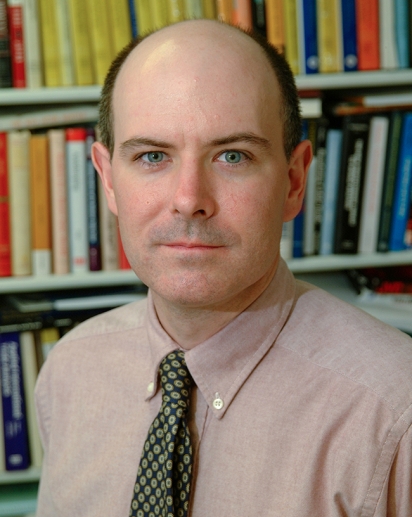
Photo credit: Dartmouth Department of Economics
It is a sign of a particularly self-aware academic department that it reflects on what value it adds or does not add to society. Accordingly, on September 18, 2023, Professor Doug Irwin of the Economics Department asked: Are economists bad for society? One cannot imagine a similar question from a professor in the Women’s and Gender Studies Department – perhaps they’re afraid of the answer.
The talk, given under the auspices of the Political Economy Project, was set to inaugurate this new term of lectures. It looks like it will be a stimulating fall with upcoming talks including Nassim Nicholas Taleb on AI and Jennifer Burns on Milton Friedman.
The presentation was instigated by a slate of new books by Binyamin Appelbaum, Elizabeth Popp Berman, Clara Mattei, and others that all took aim at economists. Professor Irwin divided the critiques into two categories. The first category holds that economists are bad on a personal level. Supposedly, to teach students to imbibe rational choice theory means creating a new generation of Randians. Irwin dismissed this argument by pointing to research that shows while economic students are more selfish than other students when it comes to economic models like the prisoners’ dilemma, they’re actually more cooperative than other majors in the real world.
The second category holds that economists affect society poorly. Irwin noted that people often claim that economists are on the side of companies: They don’t care about inequality and focus only on GDP, at the expense of the environment and leisure time. Professor Irwin was quick to point out, however, that the very way we conceive of inequality comes from economists. After all, the Gini coefficient, the standard measure of inequality, was created by economists. Irwin then pointed out that economics is often associated with neoliberalism and joked, “I am not really sure what that is” (nobody does). He also noted that much of the criticism of economists arises from professional jealousy. The aforementioned books came mostly from sociologists and historians. These disciplines have economic interests in taking down economists.
Professor Irwin granted that economics is often anti-utopian, quoting Thomas Sowell to that effect. It is bracing to learn that any aspirational policy cannot be implemented because such things as trade-offs and scarcity exist. Thus, in Irwin’s mind, economists get a bad rap because of their realism.
It is the opinion of this author that Irwin is the rare speaker at this College who is entirely correct. If I was an academic, I would ask nitpicky questions like: What is the analytical distinction between economists and economics? Are there economists that have been bad for society? Are there aspects of some of the various authors’ criticisms that you find accurate? But I am not an academic and these are dumb questions. Irwin proved that economists are good for society. Perhaps a better question is: Are economics majors bad for society?
In total, the talk was a snappy 25 minutes. We need more like that.
After the lecture portion ended, Professor Irwin fielded questions. None of them were good, including this author’s. It is worth noting that a few ‘27s (bad sign) asked standard eye-roll questions about climate change. They were respectfully dismissed by Professor Irwin. Thankfully, there were not many questions of that flavor, and indeed not many questions at all. The best Q&As are short Q&As. I dream of a Q&A in which only intelligent questions are asked.
All in all, it was refreshing to attend a lecture where someone actually praised something. The only mode most sociologists, comparative litterateurs (whatever it is they do), and historians know is critique. Nothing is ever good enough for them. Economists, however, are good enough for Irwin.

Be the first to comment on "Are Economists Bad for Society?"